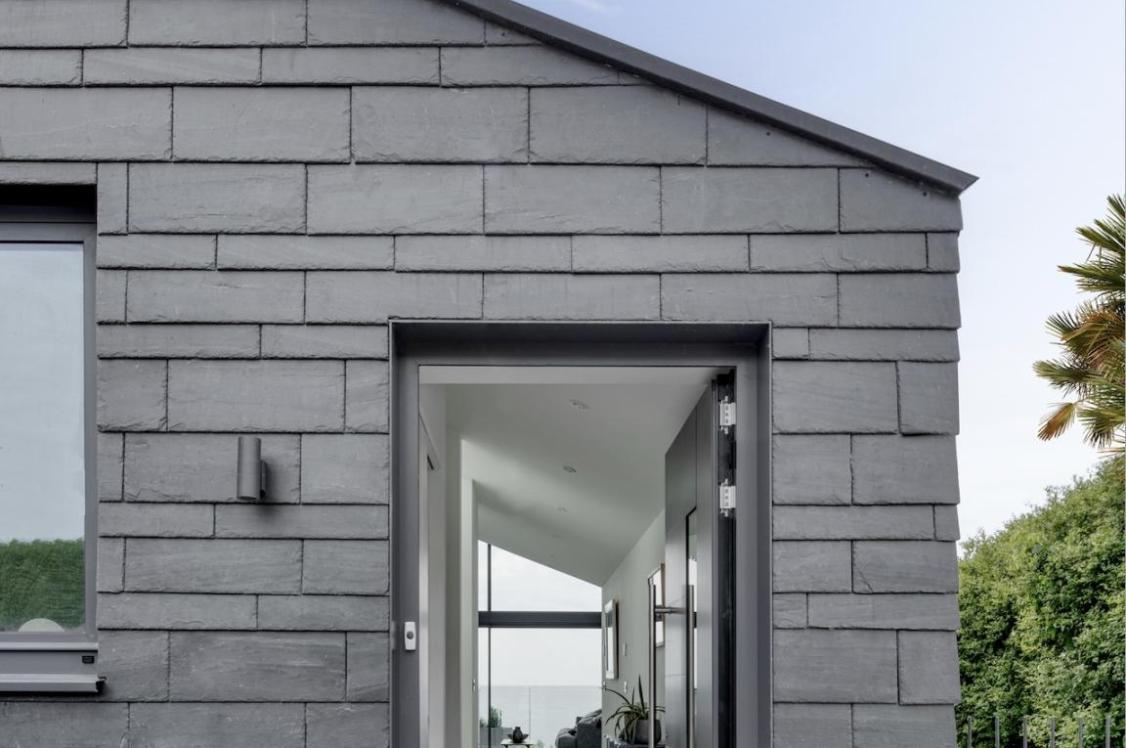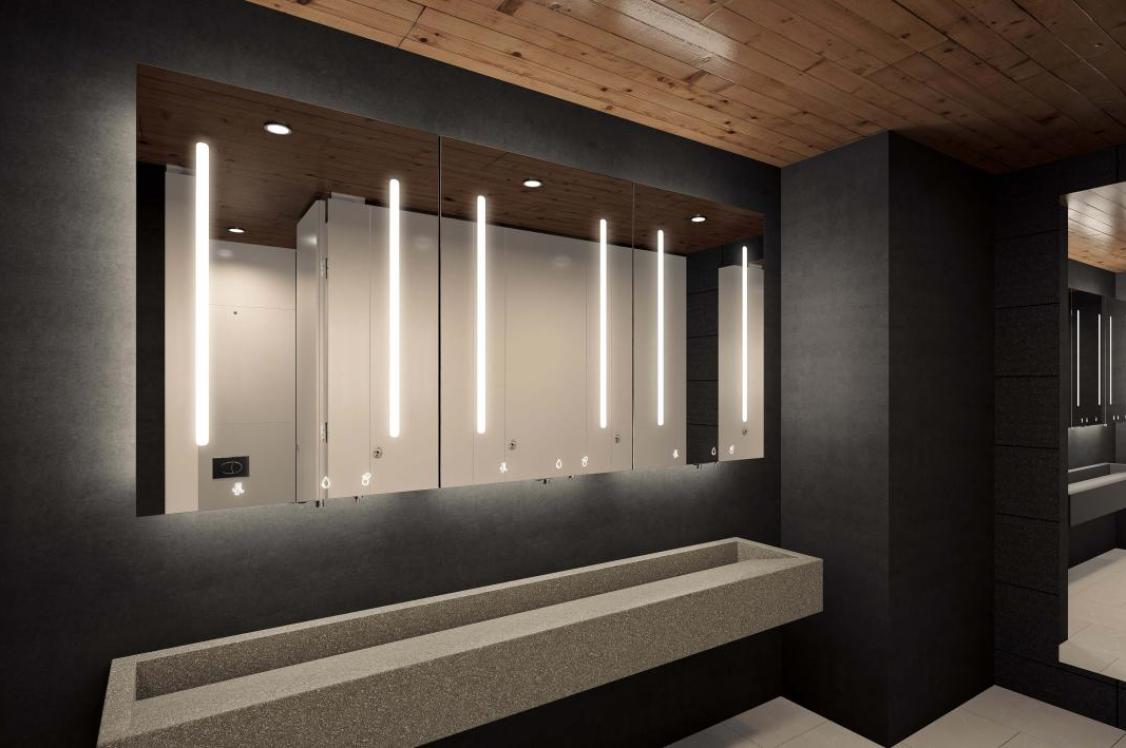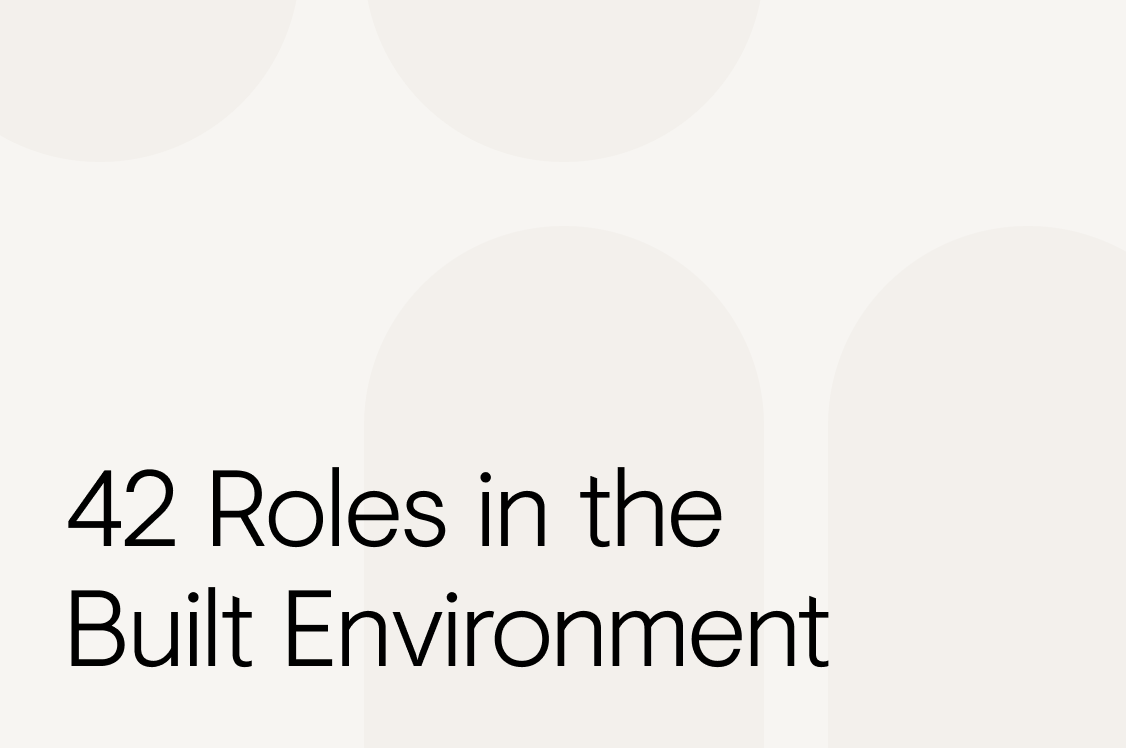Nick Atkin, CEO, Yorkshire Housing, on the UK residential market - ambition, pragmatism, and remaining positive.

Nick Atkin is the CEO of Yorkshire Housing - the biggest housing association based solely in Yorkshire.
A pioneer in the residential sector, Nick believes in innovation. His frank approach seeks to drive change and, generally, make things better for tenants and his team alike.
You'll have spotted Nick at our seminar and roundtable events, where he's spoken on the topics of workplace - he delivered Leeds’ first net zero carbon workspace - and technology, which he feels can be harnessed to get the best out of people. The improvement of peoples' lives being a common trajectory throughout all that he does.
With our editorial focus now on the residential sector, and considering the new government's ambitious plans and targets to fuel housing development, we were keen to check in with Nick once again to gauge his thoughts on how the UK is currently faring, and where things are potentially headed, particularly in the social, affordable and aged living segments.
Here, Nick takes a positive stance, while outlining the challenges housing providers are facing. The overarching message is that things are moving in the right direction. Just don't mention planning...
How is the housing market generally at the moment?
"The good news is that we’re starting to see a bit more movement. However high interest rates are still having an impact on buyers' confidence.
"Mortgage borrowing costs remain higher than homeowners have seen in over a decade and that’s because lenders base their mortgage rates on the Bank of England’s rate which remains at 5.25%.
"It’s really important that rates come down soon and we’ve been making the case (loudly!!) for this to happen. Around 1.6 million existing borrowers will be looking to remortgage later this year as their current fixed rate deals run out, with some moving off rates of less than 2%, leaving them facing much higher repayments."
What’s the difference between social and affordable housing?
"Social rent homes are for people on the lowest incomes. The government sets out the how councils and housing associations calculate social rent, considering how much the property is worth, its size and local income levels. Generally speaking, social rents are charged at around 50-60% of the market rent for the area where the property is located, and increases are limited by government policy.
"Affordable housing is a broad term used to describe a number of government schemes where homes are offered at below market value, either for sale or rent. Typically, it’s referring to affordable rent, shared ownership, rent to buy and intermediate rent.
"Affordable rent is set at up to 80% of market rent (including service charges). These properties of affordable rents are defined as ‘low cost’ accommodation. This means these homes will remain more affordable than renting on the private rental market."
What’s the split in terms of renters/buyers? And has that changed in recent years?
"The latest data from the English Housing Survey shows that just over one third of people rent their own home (35%), another third owns their home outright (35%) and just under a third owns their home with a mortgage (29%).
"The gap between the number of people renting and buying has closed in recent years as the cost of borrowing has increased. These increased costs, alongside a lack of affordable homes, is pushing ownership further out of reach for people in most parts of the country which is why it’s so important that we build more affordable homes."
With a new government in place, what impact do you expect to see in the housing sector? And what do you hope will happen?
"There is reason to be positive. The new government has clearly placed housing toward the top of its to do list. They recognise the scale of the challenge and have shown an appreciation of the significant role housing can play in growing the economy and creating jobs, as well as the obvious benefits of providing people with a safe and secure place to call home.
There is reason to be positive. The new government has clearly placed housing toward the top of its to do list.
"It’s great to see housing so high up on the political agenda – and rightly so. The election also highlighted how it’s one of the most important issues for voters. We’ve already seen several important proposed legislative changes to help tackle the housing crisis and increase the delivery of affordable homes.
"With 150,000 people on housing waiting lists across the Yorkshire region, we fully support the government’s ambition to build 1.5 million new homes over the next parliament. However, it is vital that the government work closely with housing associations like Yorkshire Housing to make this happen.
"Alongside planning reform, housing associations need certainty through a long-term plan for housing which is supported by guaranteed funding that keeps pace with rising costs. The reclassification of investment in housing as infrastructure spend will enable this long-term certainty to be provided.
"We also welcome changes that will see greater powers given to mayors and combined authorities to support local growth and communities. Yorkshire Housing, like other housing associations, stands ready to support the government on this to deliver the “biggest increase in social and affordable housebuilding in a generation” and we look forward working with them in the months and years ahead."
There have been ambitious plans laid out for building new homes, and even towns – what are your thoughts on this?
"It’s right that the government is ambitious. They need to be bold if they’re to tackle the housing crisis. However, we’ve been here before and the housing crisis hasn’t gone away, in fact, it's only got worse.
"We need to build more homes; however, we must make sure that they are the right homes in the right places and that they’re supported by integrated transport networks and other vital infrastructure. The move towards greater powers for the devolved regions makes sense as this enables funding to be targeted to address local housing need, as well as supporting clear plans to make existing homes more energy efficient and affordable to live in.
We need to build more homes; however, we must make sure that they are the right homes in the right places.
"We also need to push the government to make sure new homes are sustainable, and energy efficient. Housing can play a big part in helping the UK reduce its carbon emissions and tackle climate change, so we need to see this happen."
What sustainability initiatives have you adopted/are you adopting?
"Sustainability is high on our agenda (and rightly so!). We’re focusing on achieving net-zero by 2050 across both our existing and new homes.
"Our homes produce around 50,000 tonnes of carbon each year and we plan to get that down to zero. So, we’re investing £30 million by 2028 to upgrade our homes to make them more energy efficient.
"We’ve developed a net-zero roadmap for our new build homes which focuses on three main areas: achieving zero gas, enhancing insulation levels and using renewable technology.
"We’re replacing windows and doors, upgrading insulation and installing low carbon solutions like air source heat pumps and solar panels. We’re also trialling the use of smart technology in our homes so we can monitor how everything is performing and maximise energy efficiency."
Have you been able to leverage the retrofit of buildings no longer needed for their original intended purpose?
"We don’t play the numbers game - our focus isn’t on getting bigger (although we are building 8,000 new homes in addition to the 20,000 we currently own and manage) but ensuring we have high quality homes in places where people want to live.
"That does mean that we have to take a pragmatic view on some of our homes that may have reached the end of their working life or where the size and location may no longer meet the needs of the people who live there. That’s why we have an active programme of disposals and remodelling of our homes to ensure they meet both current future housing needs and changing demographics."
Later living features as part of Yorkshire Housing’s offering – has demand increased in this area over the last decade?
"Demand for all types of housing has increased. That because it’s long been widely accepted that we are in the midst of a housing crisis. There’s an acute shortage of affordable homes across the country and despite this the number of housing starts is at a 10-year low.
"The numbers make grim reading. Across the UK there are 1.3 million households on housing waiting lists, 309,000 people are classed as homeless and 145,000 children living in temporary accommodation. And so far, the reforms and policy changes that successive governments have made over the years have had little impact in addressing this growing problem."
You offer additional support to the tenants/homeowners that choose a home through Yorkshire Housing – can you tell us what this entails?
"We’re proud to be more than just a landlord and we want our customers to know that we’re here for them if things get tough.
"We offer a range of additional support services for our customers including money advice to help people budget, employment support for people preparing for interviews or applying for jobs, health and wellbeing advice for people struggling with their mental or physical health and tenancy advice to help our customers stay on top of their rent payments."
You have a podcast Raising the Roof – tell us more
"We’re now well into our third season. Over that time, I’ve chatted with some amazing people from the world of housing and beyond. We discuss the hottest topics and tackle some of the biggest issues facing the sector and wider businesses.
"We kicked off season three chatting with Kwajo Tweneboa, the UK’s most prominent social issues campaigner. His experience growing up in social housing, and tireless campaigning, has changed the sector over the past few years.
"I’ve just recorded an episode with Melanie Franklin, founder of Agile Change Management. She’s an organisational change guru, so if you’re currently going through a period of change in your business make sure you check it out.
"Last year we were in the top 25% of most listened to podcasts. So, if you’ve not already checked it out, give us a listen! You can find us wherever you get your podcasts."
Who are your collaborators at Yorkshire Housing?
"Devolution provides housing associations the opportunity to work in partnership with combined and local authorities to deliver more high quality, affordable homes across Yorkshire.
"We’re proud to be part of the York and North Yorkshire Housing Partnership, West Yorkshire Housing Partnership and South Yorkshire Housing Partnership.
"By working together, the partnerships focus on providing affordable homes, regenerating local communities, contributing to the growth of local economies and the road map to net zero, preventing homelessness, supporting good health, and connecting people to jobs, skills and opportunity."
How do you find the planning process?
"Haha, what a question! How does anyone find the planning process!!!
"Like many others across the housing sector, I’m chuffed at the government’s commitment to update the National Planning Policy Framework and to restore mandatory building targets for councils. Other welcome news is their desire to deliver “the biggest boost to social and affordable housing in a generation”.
"It’s certainly a step in the right direction, however it’s vital that the government work closely with housing associations to make this happen."
What’s next for Yorkshire Housing?
"We’re on a journey to become the UK’s best housing provider. We’re going to get there by moving from a reactive service model to a pre-emptive one that delivers a great customer experience.
"What I mean by that is that at the moment we wait for things to breakdown before fixing them. Instead we’ll use technology and artificial intelligence to predict when problems might occur and get in and tackle them before they do. For example, we’ll install smart technology in our homes to monitor things like boilers and we’ll use artificial intelligence to predict when a customer might fall into rent arrears.
"We also have ambitious plans that’ll see us build 8000 new homes across Yorkshire so that everyone has a place they're proud to call home. We’re already halfway there and we’re proud to be Yorkshire’s largest developing housing association."
And what’s next for the future of affordable/social housing?
"The early signs are really positive. But we know that the devil is always in the detail and how any ambitious plans are going to be funded.
"Our offer to the new government is clear. Yorkshire Housing and the entire sector stand ready to help tackle the housing crisis. But to do this we need long-term commitments that provide the certainty needed to enable us to plan for the future and build the affordable homes people so desperately need."





































































